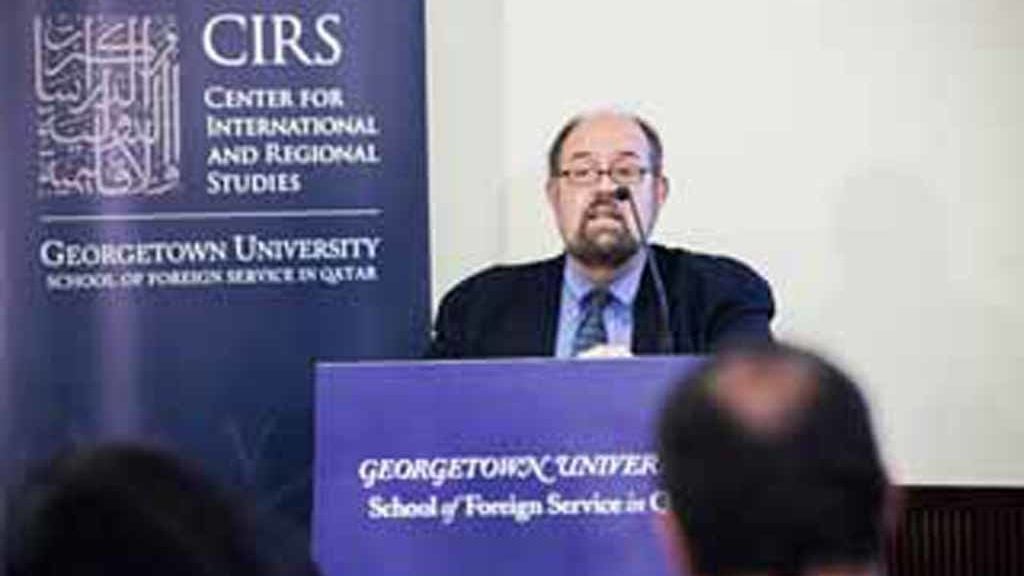William Beeman on Iranian-Arabian Biculturalism

Georgetown University School of Foreign Service in Qatar (SFS-Q) welcomed William Beeman, Professor and Chair of Anthropology and specialist in Middle East Studies at the University of Minnesota, to share his insights on “The Khalijis: Iranian-Arabian Biculturalism in the Gulf Region”, on Tuesday at the SFS-Q campus.
The open event was well attended by SFS-Q students; as well the wider community of Qatar who took an interest in this topical presentation which saw Beeman examine the relationship between the historical population of Southern Iran and the communities in the Arabian Gulf region, whom he referred to as “The Khalijis.”
He began by looking at the various historical events that affected the region from the Ottoman Empire to the forming of Saudi Arabia under the ruling of Al Saod, through to the Iranian – Islamic revolution.
Beeman then went onto examine the economic relationships between Iran and “The Khalijis”, including the trade roots and the discovery of oil; concentrating on how the unified ethnic harmony of the Gulf was affected by global economic trends.
Having lived in Iran and “The Khalij” for many years, Beeman was able to give real life examples of three families that represent ethnic harmony in the Gulf Region: Kermati, Hamadi and Al Khalifeh families. He explained about their lifestyles and how their extended relations cover the entire Khalij and in this way untie the area on a personal and human level.
Beeman concluded, “Both the population of Southern Iran and “The Khalijis” share a syncretic culture which consist of bi-cultural customs, bilingualism and widely distributed family and work on both coasts. If I were to speculate on its implications for on-going Iranian-Arab relations, I would conclude that although there is significant conflict among Iran and Arabs at the moment this shared culture and inter-family relationships makes it very unlikely that the political tensions will escalate.”